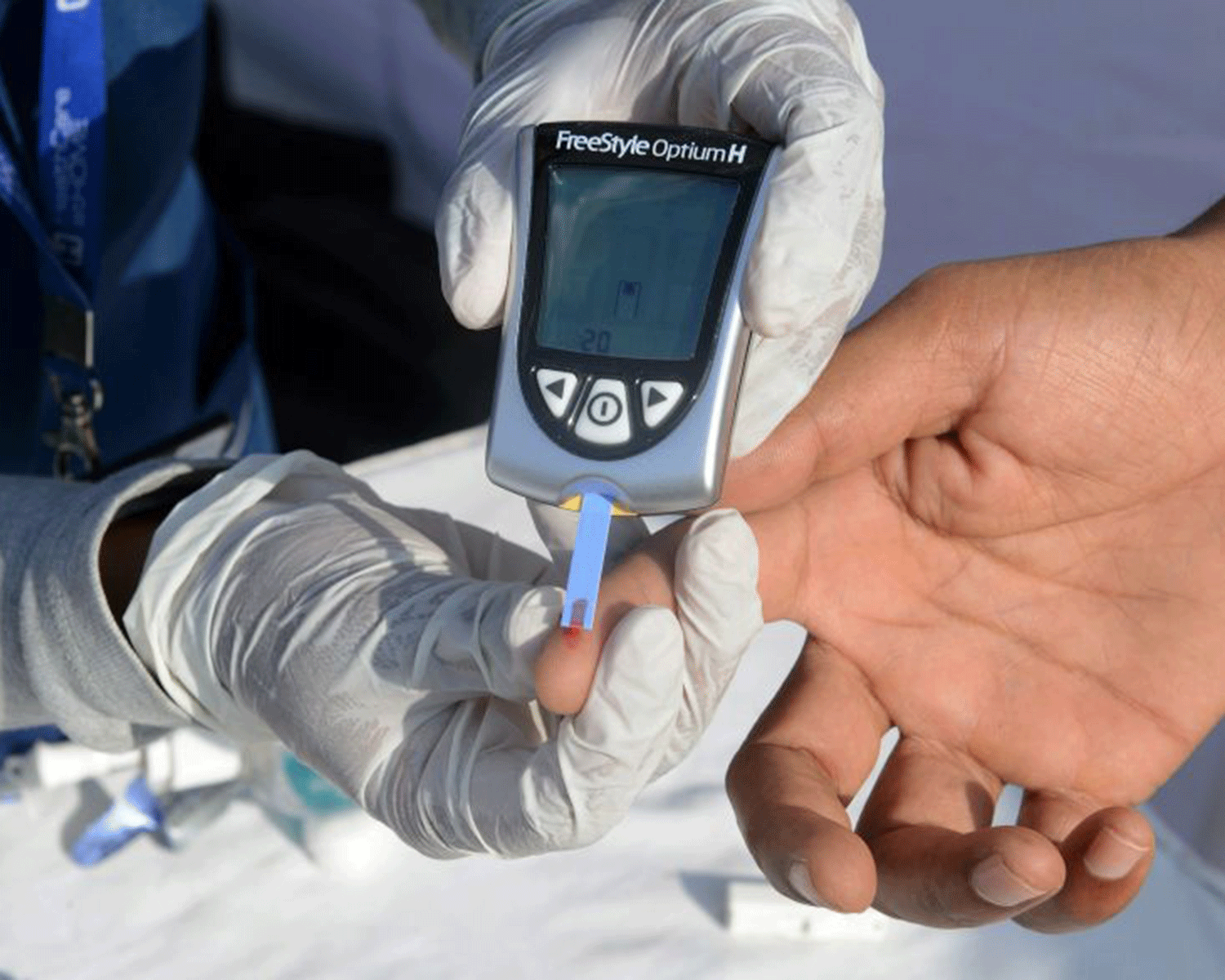Diabetes has 'quadrupled' around world in about 30 years, says WHO
About 422 million adults worldwide were living with the disease in 2014

Your support helps us to tell the story
From reproductive rights to climate change to Big Tech, The Independent is on the ground when the story is developing. Whether it's investigating the financials of Elon Musk's pro-Trump PAC or producing our latest documentary, 'The A Word', which shines a light on the American women fighting for reproductive rights, we know how important it is to parse out the facts from the messaging.
At such a critical moment in US history, we need reporters on the ground. Your donation allows us to keep sending journalists to speak to both sides of the story.
The Independent is trusted by Americans across the entire political spectrum. And unlike many other quality news outlets, we choose not to lock Americans out of our reporting and analysis with paywalls. We believe quality journalism should be available to everyone, paid for by those who can afford it.
Your support makes all the difference.The number of people with diabetes has quadrupled around the world over the last 35 years, according to a new report.
The World Health Organisation (WHO) has warned that diabetes is now a "serious threat to population health" as obesity fuels a rise in the disease.
And, while it was once more confined to richer countries, the 2016 WHO report warns that diabetes is now rising fastest in middle and lower-income countries.
Margaret Chan, director-general at the WHO, said those with diabetes in poorer countries were in particularly difficult situations.
"No longer a disease of predominantly rich nations, the prevalence of diabetes is steadily increasing everywhere, most markedly in the world's middle-income countries," said Dr Chan.
"People with diabetes who depend on life-saving insulin pay the ultimate price when access to affordable insulin is lacking."
Diabetes is a chronic disease which occurs when the pancreas does not produce enough insulin - the hormone which regulates blood sugar.
Sufferers can have high levels of blood sugar as a result, which over time can lead to serious damage to many of the body's nerves and blood vessels,aeffecting the heart, eyes and kidneys.
While Type 1 diabetes is brought on in childhood for unknown reasons, Type 2 diabetes – the more common type – is largely the result of being overweight and not exercising.
Whereas about 108 million people suffered from the disease in 1989, that number has nearly quadrupled to 422 million by 2014, the report found.
And diabetes among adults has increased from 4.7 per cent of the global population 36 years ago to 8.5 per cent at the last count.
The WHO said that healthy eating habits in childhood was one of the best ways people could avoid obesity in later life, along with 30 minutes of exercise a day and giving up smoking.
In this year's Budget statement, Chancellor George Osborne said "there was a problem with sugary drinks" and announced that a tax on the soft drinks industry would come into force in two years.
Experts predict that more than half of all UK boys and 70 per cent of girls will be overweight or obese within a generation. Treating diabetes currently accounts for 10 per cent of the whole NHS budget.
Around the world, 1.5 million deaths were caused by diabetes in 2012, the WHO report said.
Dr Chan warned the cost of dealing with the disease would damage the global economy.
"Diabetes and its complications impact harshly on the finances of individuals and their families, and the economies of nations," she said.
She added that 150 countries had set the "ambitious target" of reducing non-communicable diseases, such as diabetes, by one third for the 2030 Agenda for Sustainable Development goals.
Join our commenting forum
Join thought-provoking conversations, follow other Independent readers and see their replies
Comments